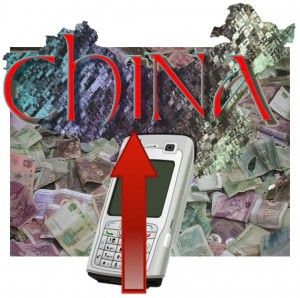Shopping over smartphones and tablets is moving ahead in a striking way within that country.
Emarketer has now released data that has shown that the m-commerce marketplace in China, representing shopping occurring over smartphones, tablets, and other types of mobile devices, will be reaching $334 billion, this year.
That figure represents a record breaking 49.7 percent of the total expenditure over online channels.
This prediction suggests that over 10 percent of the total retail sales in China will be occurring over m-commerce by next year. This trend in China is an important one, and it is an estimated 450 percent greater than what is going on in the United States. In the U.S., it is believed that sales over mobile commerce will rise by 32.2 percent. The retail sales over smartphones and tablets will represent 22 percent of the total online shopping. That said, from a broader perspective, they will make up only a tiny 1.6 percent of all retail sales in 2015.
This is microscopic next to China’s m-commerce portion of all sales, which is 7.9 percent.
 It is clear that the Chinese retail market is seeing notably faster and greater mobile commerce growth than the trend throughout the world. That said, its own marketplace continues its direction toward the digital sphere. Online retailers are working hard to ensure that they are continually prepared to evolve as consumers expect, and they are working hard to help to bring that same ease of shopping into areas of the country that are harder to reach.
It is clear that the Chinese retail market is seeing notably faster and greater mobile commerce growth than the trend throughout the world. That said, its own marketplace continues its direction toward the digital sphere. Online retailers are working hard to ensure that they are continually prepared to evolve as consumers expect, and they are working hard to help to bring that same ease of shopping into areas of the country that are harder to reach.
Two giants – JD.com and Alibaba – are making major investments into the rural communities of China, where there is the most room for online shopping growth within the country. In fact, the current rate of mobile commerce use is greater in the rural areas than it is in the large urban centers. This makes sense, considering that people in the major cities have a much greater availability and selection of products than those who are away from the ocean of brick and mortar shops.
That said, m-commerce needs to be implemented strategically. Even Alibaba has seen less than one tenth of its online purchases shipped to rural areas despite the massive potential there.

